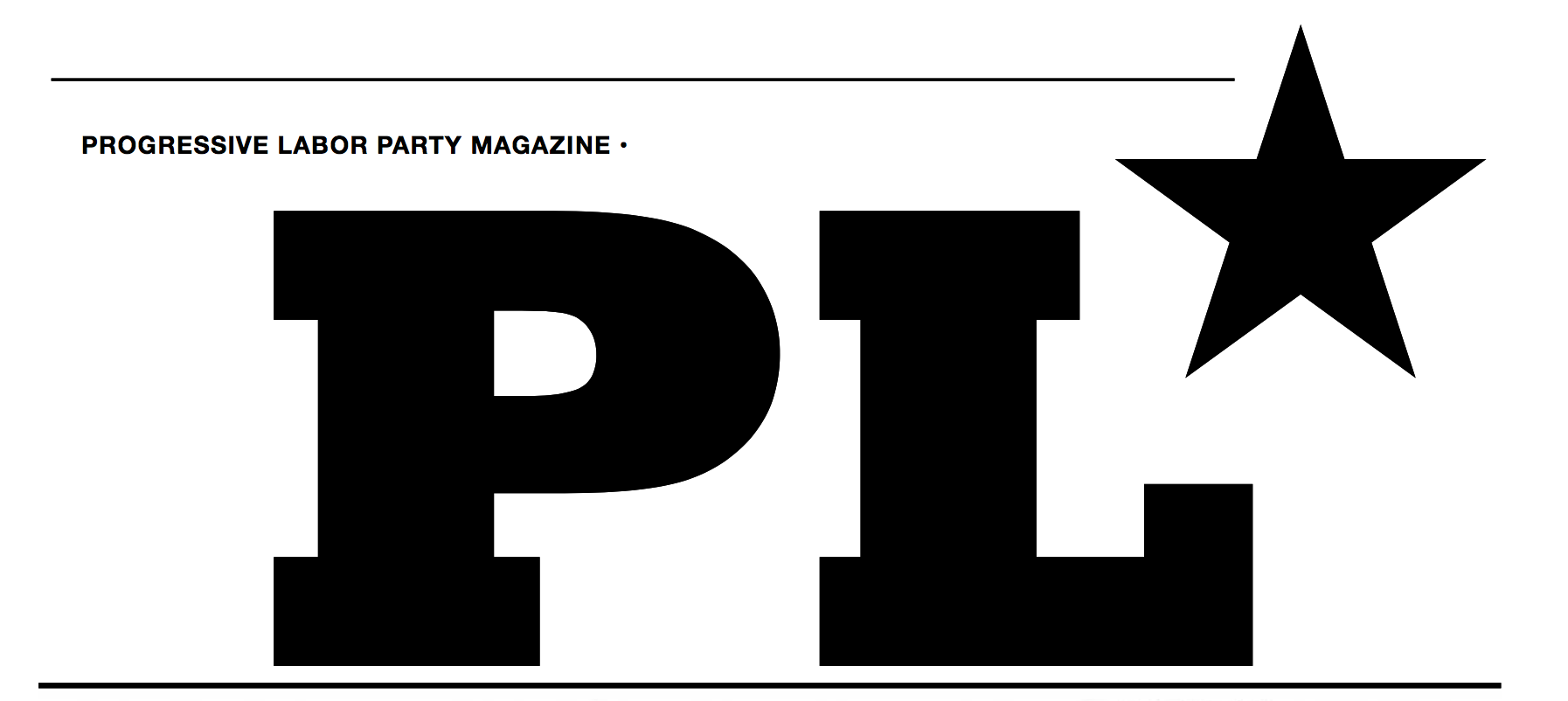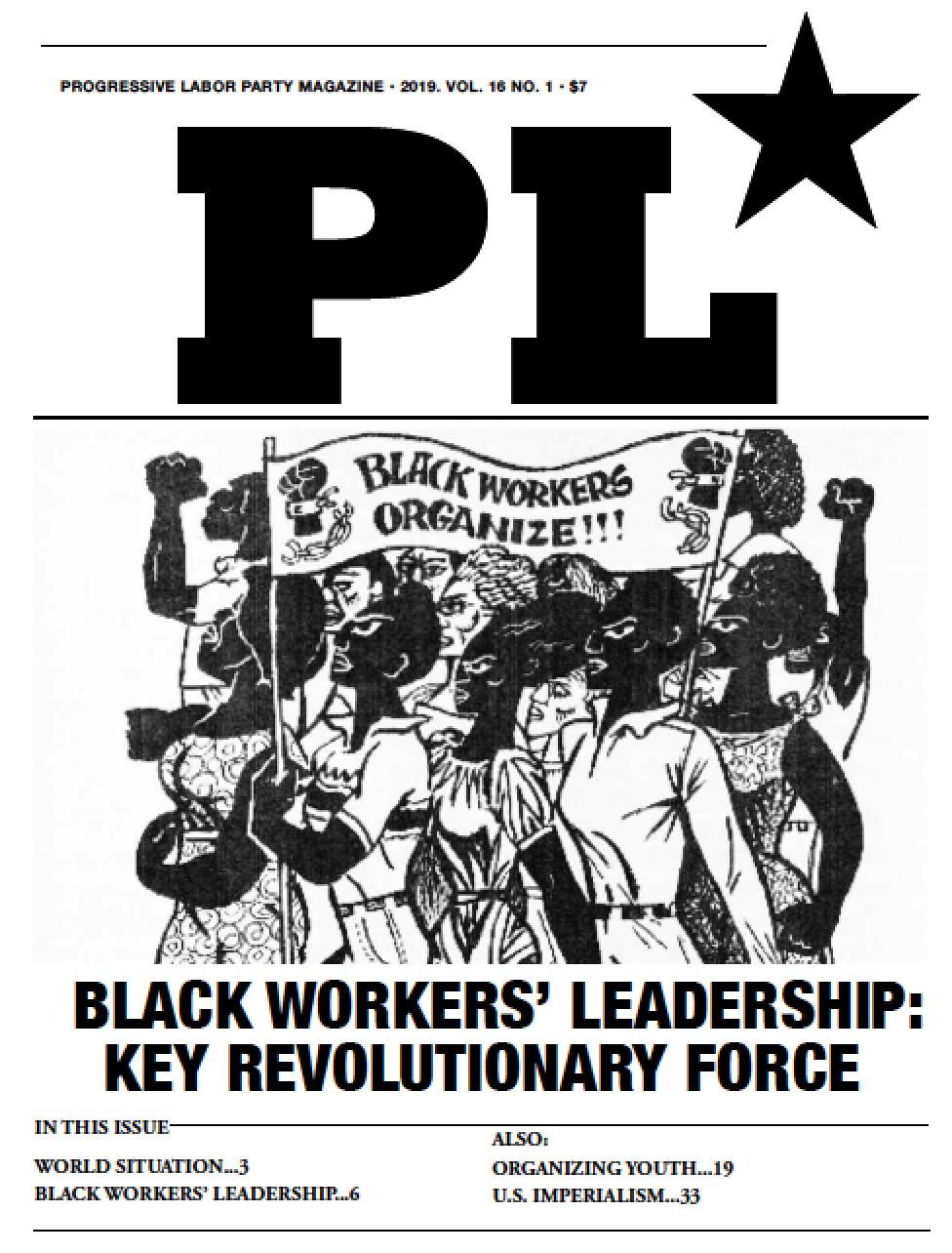Red leadership needed: Women garment workers rise vs. Myanmar’s military dictators
 Friday, April 30, 2021 at 4:11PM
Friday, April 30, 2021 at 4:11PM MYANMAR—Of the 700,000 garment workers in Myanmar 90 percent are women. They are striking against the exploitation by the garment industry bosses and also leading the uprising against the military dictatorship that is ruling the country. They should not be pleading with the garment industry capitalists and their politician flunkies for a better deal. There is no better deal under capitalism. Capitalism means profits for the bosses and exploitation for workers. These women leaders should fight for communism, working class power, where they help lead all of society.
A major problem for the rank-and-file locals is the role of the national union leadership, which urges workers to plead to the H&M and Zara bosses to come to their aid. The garment workers must depend on their own actions, not on the bosses, who are the source of, and profit from, their exploitation. Unfortunately, no communist leadership has emerged from which the goal would be to overthrow the system of capitalism that plunges workers into abject poverty, enforced by the bosses’ cops and military. The trade union leaders do not and cannot have the aim to turn the anti-government protests into a class war against the profit system and for communist revolution.
These brave women fighters can lead a communist world
Often seen at the very front, wearing a mask and white helmet, was Ma Moe Sandar Myint, a 37-year-old mother of three and sewing machine operator. She is the rank-and-file leader of one of the largest union locals, is responsible for organizing more than 20 marches, and is among those calling for a general strike to paralyze the economy in a fight for their rights.
Ma Tin Wei, 26, a garment worker for five years who makes men’s jackets for the Italian brand OVS, organized a strike on her factory floor after the coup. She warned that, “If there were rights violations before in factories, then under a military regime there is no question things will be even worse for garment workers with low-wage jobs. This is a fight I must take on…even if it means risking arrest or death. It’s for me, my family, my union colleagues and all the people of Myanmar” (All quotes are from New York Times, 3/12).
Mai Ei Phyu, who leads 500 workers at a factory that makes jackets for Adidas, was hiding from the police looking for her. She said she was proud of the leadership role of young women garment workers. “We were important,” she declared, “because we started the protests and came out on the streets early and set a good example for other people across the country. People are proud of us. I do what I do now for my son and daughter and the next generation.”
Myint moved to a safe house after the cops raided her own home on February 6. Leading protests by day and hiding at night, she has not seen her family since.
Harsher conditions under pandemic pressures
The number of people making less than $1.90 a day has more than tripled, to 63 percent of the population since the pandemic began. After a year of Covid-19-induced shutdowns, layoffs, pay cuts and union crackdowns, tens of thousands of garment workers have taken to the streets, many of the youth arming themselves.
Most women garment workers come from smaller cities or rural villages and have moved to the larger city of Yangon. They labor 66-hour workweeks ― 11-hour days, six days a week ― and most live in dormitories, sending part of their wages back home to their families. In such “housing,” they are vulnerable targets for the military.
Myanmar’s garment industry is vital to the economy, comprising 31 percent of all exports in 2018, worth $4.6 billion. Many Western companies such as H&M and Adidas have become important markets for the industry’s bosses. The uprising’s effects were cited by H&M’s manager in Myanmar as causing “practical difficulties and an unpredictable situation limiting our ability to operate in the country.”
The military has been a bulwark for the garment bosses against the strikers, using tear gas, water cannons, rubber bullets and live rounds, and killing hundreds at rallies nationwide.
The spirit that could lead to such an outcome flows from the kind of determination expressed by Moe Sandar Myint, “The more I see the suffering, the more I want to fight, even at the risk of death. This might end with my blood being spilled, but I won’t stop now!”





 Progressive Labor Party (PLP) fights to destroy capitalism and the dictatorship of the capitalist class. We organize workers, soldiers and youth into a revolutionary movement for communism.
Progressive Labor Party (PLP) fights to destroy capitalism and the dictatorship of the capitalist class. We organize workers, soldiers and youth into a revolutionary movement for communism.




Reader Comments